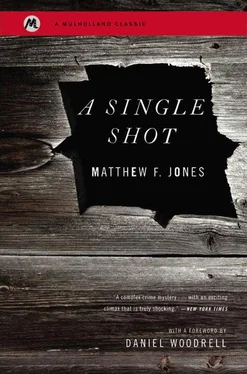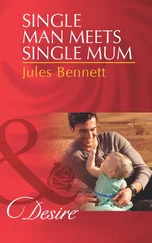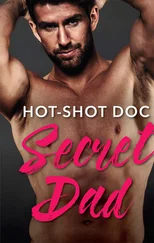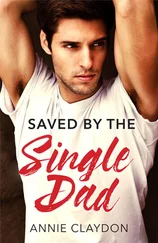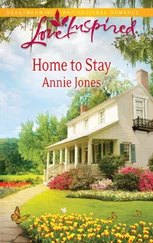“What’s your daddy think about what they’re teaching you in school?”
“I didn’t discuss this particular matter with him and don’t you dare tell him I did with you!” She purses her lips. “I wouldn’t ask for too much at first, maybe just that Daddy let you buy some heifers from him and raise them up in the barn, then—you know, after that—a piece of the land, and Daddy would listen too, John, because he’s real worried that after Eban and I go off to college he and my mom won’t be able to keep up with the work.”
“Buy back a piece of my own farm, you mean?”
She pushes hair out of her eyes. “John Moon. If you keep looking back, you’ll never get ahead!”
“Maybe you ought to worry ’bout losin’ your inheritance.”
“I won’t need one because I’m going to be a millionaire before I’m thirty. I got a thousand ideas how to do it, like making you my daddy’s partner.”
“Huh?”
“I have faith in you, John Moon.” She giggles. “You’ll only make my inheritance bigger.”
“Glad I ain’t married to you.”
“Me too. We’re not at all compatible.”
“No, we ain’t.”
“We can still be friends, though, can’t we?”
“Uh-huh.” John lets go of the horse. “Be careful back in them woods. It’s nearly dark and is slippery underfoot.”
“Don’t worry about me, John Moon. I’m an experienced horsewoman.” She starts to ride off, then reins Diablo in. “What’d that man you told Daddy shot Mutt have to say?”
“Huh?”
“When he was up to your trailer today?”
John raises his eyes at her.
“An hour or so after the Cadillac left. His car went up by, then come back down a while later. You weren’t there?”
“Nuh-uh.”
“You think he’s telling the truth about what he’s doing around?”
“Don’t know.”
“I told Daddy we ought to call the sheriff, but he didn’t want to.”
“That’s probably for the best.”
“I only hope none of us regret it later.”
“Me too.”
“Think about empowerment, John Moon. Daddy’s feeling a lot of pressure. And, same as me, he likes you.” She turns in the saddle, nudges the horse’s belly with her feet, and slowly rides off in the direction of the pines.
Against his tired body, the heavy wet branches feel like grasping arms, then bullwhips, so, going down the hill, he cuts right through the woods and, from there, walks the dirt road running like a funnel through thick forest that impedes his view of the valley.
Less than fifty yards from the trailer, he sees, in the not quite dark, moving on the grass below the pond, several large, ominous shapes. As if by instinct, he veers left and, stealthily as he can, slogs through the rain-battered meadow to the near corner of the trailer, where he crouches down to watch and listen to, with their distinctive gobbles, half a dozen wild turkeys picking at the drenched timothy. Among them are two large males. He thumbs off the shotgun’s safety and, to keep from tainting the meat, aims for the head of the larger. In his mind he hears the shot loudly shatter the still air and sees the headless bird fall sideways onto the grass, but before vision becomes reality, his hands begin to tremble, his teeth to chatter, and his heart wildly palpitates.
He opens the gun’s breech and, panting heavily, lays it on the grass next to him. He remembers his father telling him that the Indians native to this region believed turkeys to be cowardly and stupid and for fear of becoming so themselves refused to kill or eat them. Seeming to have little instinct for danger and with their fantailing and loud prattle constantly calling attention to themselves, the birds are, John agrees, dumb. He sits there watching the flock until it is dark and he can’t see it anymore, but can only hear its inane patter. Still, he sits. He wonders if he’ll ever again be the hunter he was. If ever again he’ll be who he was. He hears Abbie Nobie slowly walking Diablo back down the hollow road, her earnestly conversing about star constellations, and the horse’s brusque snort. After its footsteps have faded away, he picks up the shotgun, stands, and walks through the kitchen entrance into the trailer.
Lying on the floor are pots, pans, silverware, dishes, letters, canned goods, condiments. Every drawer and cabinet looks rifled. The cushions are thrown from the couch. The back of his father’s old recliner is sliced open and its stuffing torn out. Beyond the grease fire’s lingering stench, a faint, unpleasant odor mars the air. Moira’s breakfront is trashed; lying beneath it, atop bank statements, personal letters, photo albums, and John’s Instamatic camera, are his Polaroids of Moira posing nude, and others of him holding Nolan as a newborn, of Moira nursing the boy, of John giving him a bath. A stabbing pain breaches John’s chest. He kneels down, slides the snapshots back into the envelopes from which they had come, then carefully places the envelopes back into the breakfront.
He stands up and walks down the hallway, the stench getting stronger, into the bathroom, where the medicine cabinet is ransacked, the ballcock to the toilet ripped out and its porcelain top smashed on the floor. Every sheet and towel is thrown from the linen closet. Bottles and cans of cleaning solvents roll on the floor. The trapdoor covering the pipes is open.
He steps back into the hallway, turns left, glances into Nolan’s old nursery, where the closet doors are thrown back and the empty toy chest is turned upside down.
Halfway down the corridor toward the master bedroom, he sees, through the open doorway, clothes, magazines, and bureau drawers littering the floor. He smells what he smells more distinctly. In a frightened half-jog he enters the room. Lying face up on the bed, her body wrapped below the neck in clear plastic, is the dead girl. Attached to her chest a yellow sheet of paper declares: “John Moon murdered me!” In the middle of the rug, John drops to his knees, puts his hands to his face, and blathers in a mysteriously poignant way.
Beyond cerebration is a place clearer than thought. Equivocations don’t exist in this realm. There is no moral compass. Inside, only him and the dead girl. Outside, the world circling like vultures.
Oblivious to the stench, he sits down on the mattress near her head and studies her pale, bloated face. Her mouth is slightly open and a small particle of food is still lodged between her teeth. Her eyes are closed, her nostrils exaggeratedly flared. The ponytail lies like a thick nest beneath her head. Mashed to her forehead is a dead mosquito. He imagines her voice, medium-pitched and resonant, sounding beyond her years. She laughed often, a free-flowing verse, occasionally at things that others didn’t find amusing. She sometimes cried without provocation. The world struck her as ridiculous or tragic. She wasn’t sure why. She had a weakness for bad men. Mean men. Men who beat her up, then brought her roses.
He reaches down with his forefingers and gently pushes at her eyelids. They’re swollen shut. He pushes harder. The lids open with a quiet pop to eyes the color of deer hide. She kept getting into situations. Her parents were pathetic. Her friends were the world. She liked sex because they did and she was supposed to, but what really got her hot was pushing things to the limit. She had trouble seeing a point beyond that. She didn’t like to hurt people, though, or to see them hurt. She was compassionate toward those who were helpless. If she could, she would avoid stepping on an ant. She didn’t like to think about growing old. She had a sneaking suspicion she wouldn’t. Old people were like robots. She once dreamed her parents ran on batteries. She wrote a short story about this and while reading it to her English class felt so liberated she thought of becoming a writer but decided she couldn’t spend that much time sitting down.
Читать дальше
